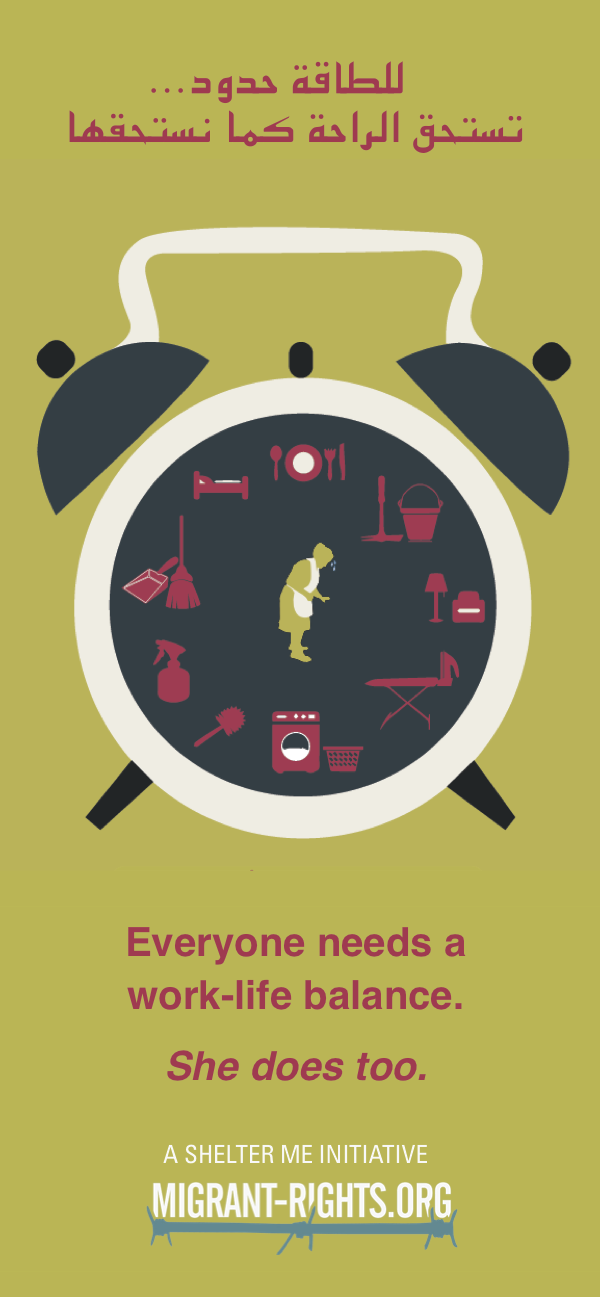Domestic workers in GCC: Overworked and underpaid.
In the GCC, Ramadan means reduced work hours for most residents. Schools and offices function on shorter hours. This allows observers and non-observers alike to arrive later and leave earlier than usual.
But, for many domestic workers – migrant workers working as nannies, housemaids and cooks – the work day becomes even longer during Ramadan. Most domestic workers in the region on a regular basis work upwards of 15 hours a day. Ramadan means even longer days and more responsibilities, regardless of whether the worker observes Ramadan fasting or not.
This year, Migrant-Rights.org launches a region-wide campaign, appealing to employers – Gulf citizens and expatriates – to respect the rights of the workers they employ. The focus of this year's campaign is work-life balance.
Share this campaign with friends and family as a reminder that domestic workers should always enjoy reasonable working hours and decent working conditions.
The two posters in the first phase were designed by students of VCU-Qatar in a summer school design class taught by Mohanalakshmi Rajakumar. The students worked closely with the MR team to communicate this public interest message.






